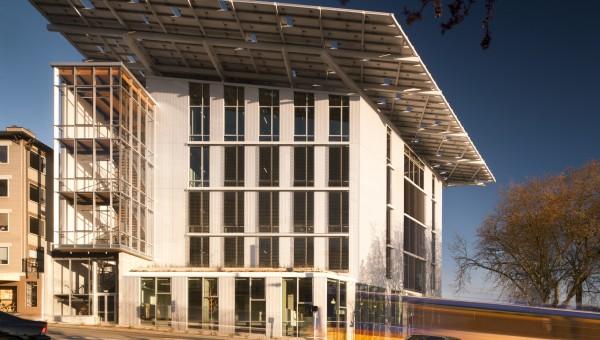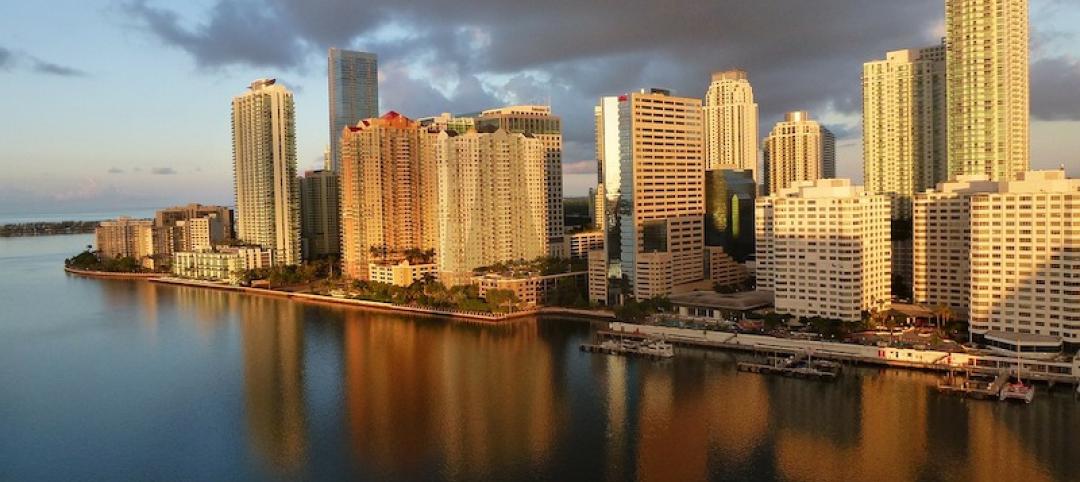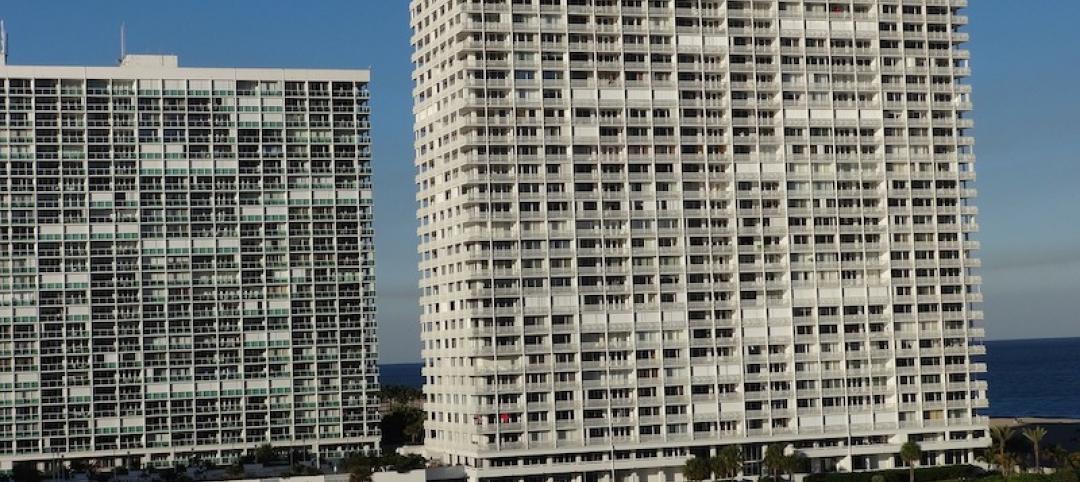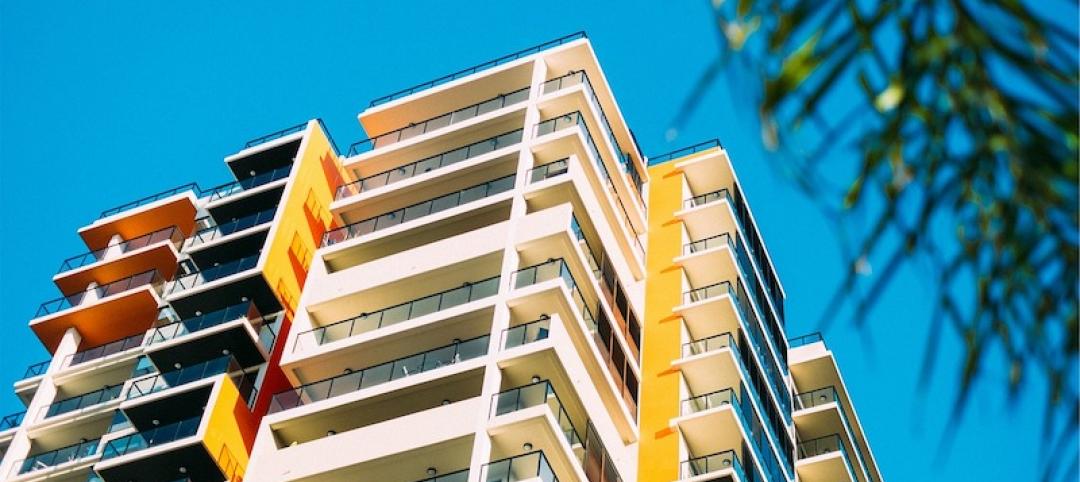The Bullitt Center in Seattle, which some say is the world's "most efficient" office building is not only influencing how other structures are built, it is contributing to revisions of codes and public policy.
The building’s design was made possible by Seattle’s Deep Green Pilot Program that allows builders to deviate from standard codes to build more sustainably. For example, the building was allowed to add two to three feet to the height of each floor to allow more daylighting. Neighbors objected to the additional 10 feet in overall building height, but the program permitted the non-conforming design.
Some of the building’s code deviations have been incorporated into the city code. For instance, the city council and the mayor had to approve changes to the building code to allow permits for “sustainability features.” This move allows the building’s solar canopy to extend all the way to the property line.
Bullitt Foundation, the environmental group that owns the building, recently signed a first-in-the-nation agreement with the local utility that will allow the foundation to sell Seattle City Light the energy it is saving or “negawatts.” The arrangement, known as MEETS (metered energy efficiency transaction structure) could be a pioneer in drawing investment funds to energy-efficiency projects.
Bullitt is also seeking final approvals from the county and state to turn the building into its own water district. That designation would allow tenants to drink rainwater collected on site and treated in the building’s basement.
(http://grist.org/business-technology/how-one-building-is-changing-the-world/)
Related Stories
Codes and Standards | Jul 27, 2021
Add a wobbly moon to flooding risk factors
Earth satellite’s orbit variations will lead to sunny-day flooding in the mid-2030s.
Codes and Standards | Jul 26, 2021
Revamping of Florida building codes on the table after condo collapse
Tragedy could prompt upgrades like post-Hurricane Andrew effort.
Codes and Standards | Jul 21, 2021
Proposal to give Calif. hospitals more time for earthquake retrofits stirs controversy
State hospital association says 2030 deadline should be extended.
Codes and Standards | Jul 20, 2021
New York, New Jersey legislatures may revamp bidding rules to promote low-carbon concrete
Contractors would have to certify that their concrete is in compliance.
Codes and Standards | Jul 19, 2021
Lack of information on carbon emissions challenges construction industry
Reports recommends whole-life carbon assessments on building projects.
Codes and Standards | Jul 19, 2021
Florida condo collapse spurs increased scrutiny on inspections, regulations
Insurers demand proof of current inspections.
Codes and Standards | Jul 15, 2021
Three drywall code-referenced publications have been updated
Include guidance on fire resistance, sound control, application, and finishing.
Codes and Standards | Jul 14, 2021
Biden’s infrastructure proposal includes massive investment in school buildings
‘Once in a lifetime opportunity’ to upgrade HVAC and other key systems.
Codes and Standards | Jul 13, 2021
Reluctance to fund maintenance on older condos is a serious problem
Owner associations defer needed work, putting properties at risk.
Codes and Standards | Jul 12, 2021
Regulations on hydrofluorocarbons reduce roof insulation options
Canada, some U.S. states ban HFC blowing agents used in closed-cell foam.

















